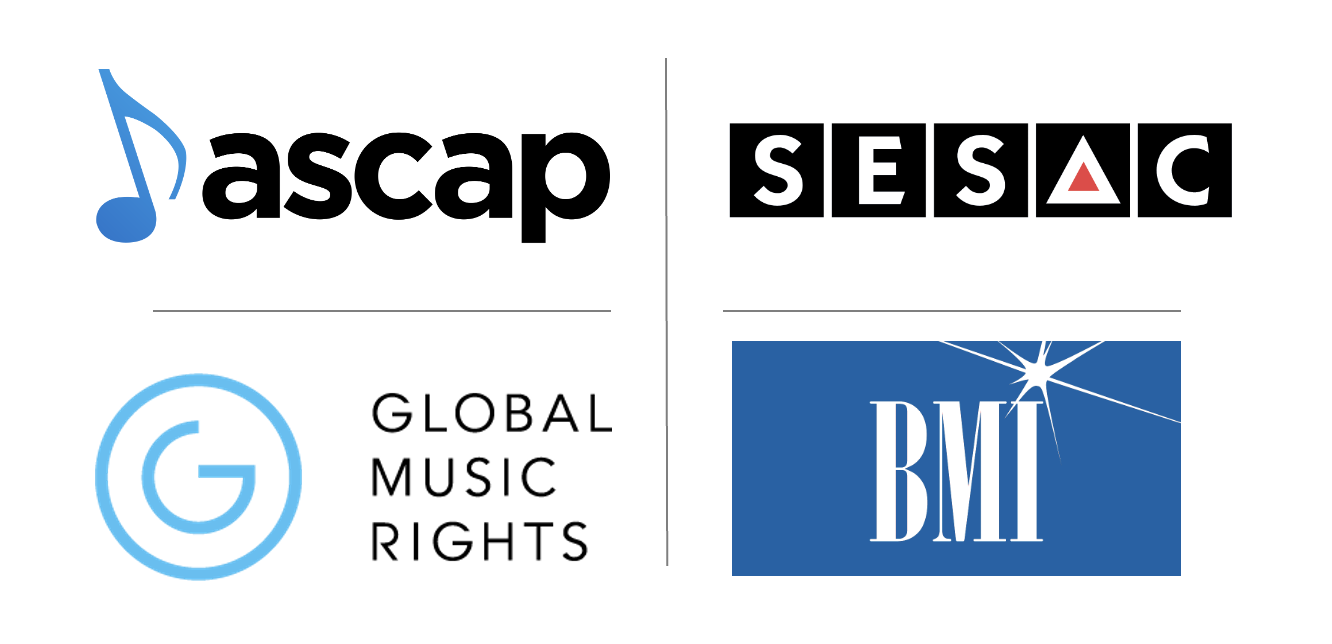Performance Royalties 101
Performance Royalties are extremely important to songwriters, composers, and music publishers who own the copyright to a composition or sound recording. So, it’s key to that information submitted to PROs (Performing Rights Organizations) is correct and properly credited to ensure proper and timely payment for royalties.
Here’s a breakdown of the 5 of the most important things you need to know about performance royalties and how to get paid what you deserve.
Performance Royalties Come From Public Performances
Wherever you can hear music in a public place, or when it is transmitted or displayed by any device or process, someone is paying a licensing fee to PROs that is distributed to the songwriters and publishers of the works. Check out the U.S. Copyright Office website for the wealth of complex information and laws related to copyrights.
Performance Royalties Are The Backbone of Publishing Revenues
While other income streams from artists, songwriters, composers, and other music copyright holders may be growing at a high rate, performance royalties are holding steady and account for more than half of what people earn. Therefore, it’s critical to ensure your information is correct when you register copyrights so you can be paid.
In Order To Get Paid You Must First Register Your Songs With a PRO.
Songwriters can only register with one PRO when registering their works you submit a song registration form, or a cue sheet which determines how much income is paid to whom, for the type of performance. PROs track music plays through various different digital and physical sources. They monitor plays using innovative technology, including audio recognition softwares such as Gracenote, Echo Nest, Shazam, and Nielsen Broadcast Systems (BDS). which are able to track hundreds of billions of performances annually. The data can be collected as either census (complete count) or by sample size. PROs also have reciprocal agreements with other countries which allow them to collect royalty payments on your behalf from that territory.
Royalties Are Paid By PROs Either Monthly or Quarterly
In the U.S. each PRO, ASCAP, BMI, SESAC, or GMR, distributes royalties to rights holders on a quarterly basis. Before distributing payments, the various PROs weigh the performances against different factors: where and when it was performed, performance medium, genre, what type of license the song was played under, cost of license, etc. These payments vary greatly by payment timing, type of payment, and who the payment is for. For ASCAP, BMI, and SESAC (Domestic Payments), if a song is played publicly, it will take between 5 and 8 months to receive royalties. Tracking, matching, and processing can lag greatly and depends on a number of factors.
Another source of income for performance royalties is SoundExchange. SoundExchange was designated by Congress to collect and distribute royalties for sound recordings which are played publicly on non-interactive, online and TV radio such as Pandora, iTunes radio, Spotify radio, Music Choice on TV, etc.. SoundExchange, unlike other PROs, offers the ability to be paid monthly or quarterly, depending on their minimums required to receive payment.
Cue Sheets, Cue Sheets, Cue Sheets!
As stated earlier, Cue Sheets are important for those who are registering their works used in film and TV productions. They are the primary means by which PROs track the use of those works so composers and publishers are properly compensated and without them, it makes it nearly impossible. Cue sheets are primarily the responsibility of production companies to submit, however songwriters and composers should make sure these are accurate before they get sent out. Every PRO has different guidelines for timing as to when they need to be submitted and when rights holders will be paid after the work has been broadcasted.
More Tips and Tools
Sign up for a free trial for TrqkIQ™ to manage your royalties and gain valuable insights with a complete picture of your performances.


